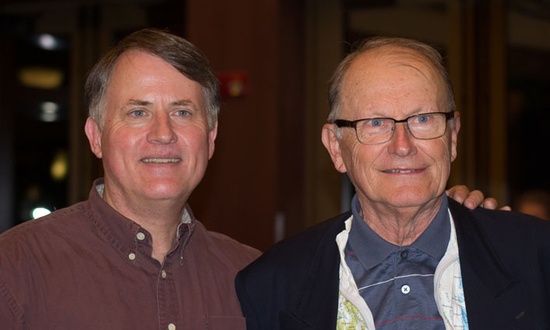George Verwer, a man I dearly love and respect, and one of the great global missions leaders in church history as well as a champion for the unborn, has rewritten and updated a chapter from his book Out of the Comfort Zone. Here’s a portion from that chapter. Listen to our brother George, who has earned like few others the right to be heard in world missions. Especially pay close attention to his final two paragraphs about doctrinal drift:

Another vital key area where things get very messy is in the whole area of finance and sending funds to mission fields for people and projects. With horror stories we can “prove” anything we want, so people tell horror stories of the misuse of funds on the field and it scares people from sending any money at all. A hot word is the word “dependence” and some very extreme books and articles have been written about this. I believe this brings a lot of confusion. I am convinced that history will show that generosity and taking the risk of supporting a project (like a school) even thousands of miles away, has been a major positive factor in taking the Gospel forward and establishing His church. I wish I had the time and gifting to write a book about it.
Some people will not support a new school if they do not see how it can be self-supporting right away. This is a huge mistake especially in places like India where they have had that teaching for years and so therefore there are very few good schools for the extreme poor (generally Dalits or Tribal People) whereas there are thousands of schools among those who can pay (I am not saying that’s wrong). In the complex situation of extreme poverty we must expect to put a lot of money in before it can sustain itself. In the case of schools it may be a couple of decades before it can change, when people who graduate from these schools have jobs. Can people even imagine what we are up against in India with almost 300 million locked into the extreme poverty of untouchability. These special situations, and there are many around the world, need hyper-special generosity. Throwing up the dependency scare tactics can be one of the great hindrances. Even with some things going wrong and we get a mess, I believe history will show that God was doing way more in the midst of the mess than we realized at the time.
In all of this we need to have more wisdom and common sense and avoid what I call destructive idealism. If this idealism combines with the kind of perfectionist streak that many of us have, it causes a lot of discouragement, disunity and confusion and often much more. That is why there are so many books setting forward someone’s teaching or agenda which gives an inaccurate picture of other people, churches and organizations and what they are doing. A little more wisdom, patience and humility would go a long way in taking us into greater reality and victory.
A controversy is going on among mission and church leaders more than I have known in my lifetime. There is a large group of people who want to be considered biblical and evangelical and yet who seem to, in a very subtle way, deny the very basics of the faith like the lostness of all who are outside of Christ and the substitutionary death of Christ.
I find that many books are so critical of the church and of the present evangelical global movement, which now involves hundreds of millions of people in almost every nation of the world. It seems like they are saying that Hudson Taylor, John Stott, Billy Graham, Oswald J Smith, William Carey, Dr. Francis Schaeffer, Charles Spurgeon, DL Moody, Elizabeth Elliot, William Booth, John Wesley, Amy Carmichael and hundreds of others who have helped this movement become what it is today had it all wrong. They might not say that, but that’s what their writing clearly infers. Their books that have become so popular have many good things to say, but again and again they move from truth to error, leaving the readers in doubt and confusion. The natural result is often criticism of their own church or denomination. They of course cause many to leave their church and start new churches often based more on reaction than on biblical truth. For me it’s leading to a higher level of ‘messiology’ than ever. In the midst of it I believe we need more wisdom, love and discernment than ever. We need the reality of pressing on ‘with our eyes on Jesus’ in the midst of the difficulties and challenges.
Photo by Ben White on Christianpics




